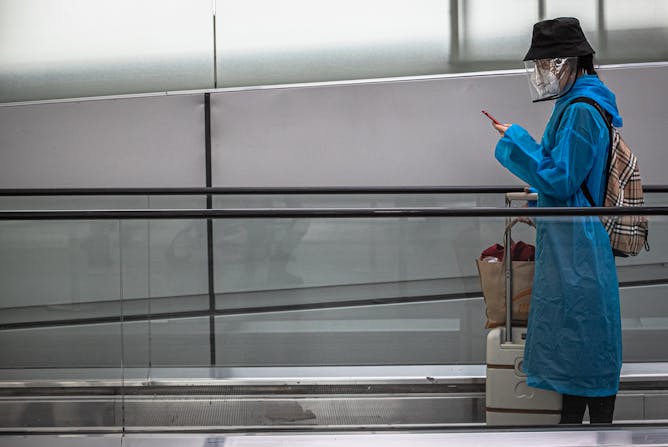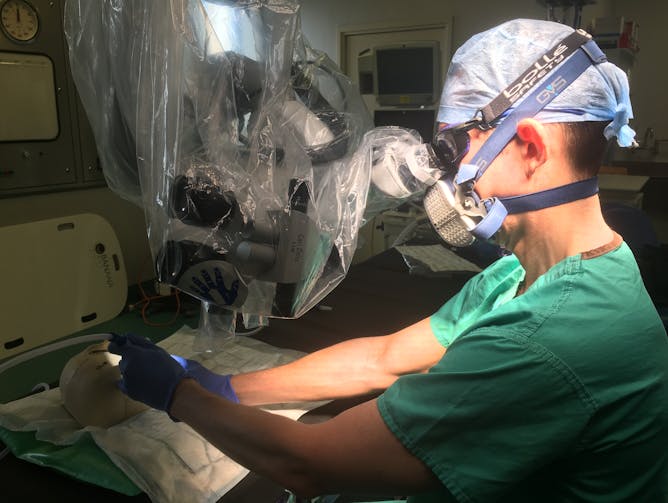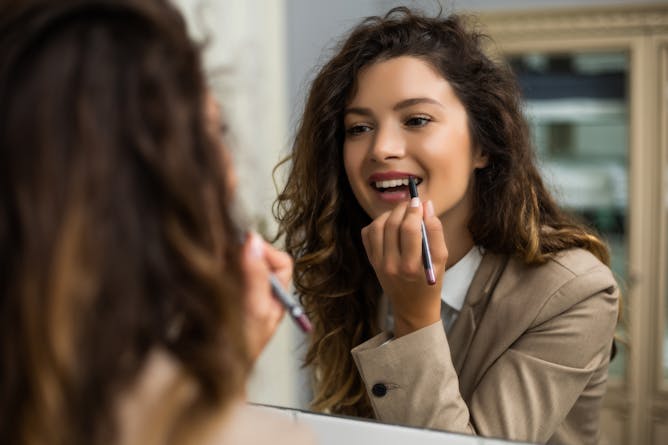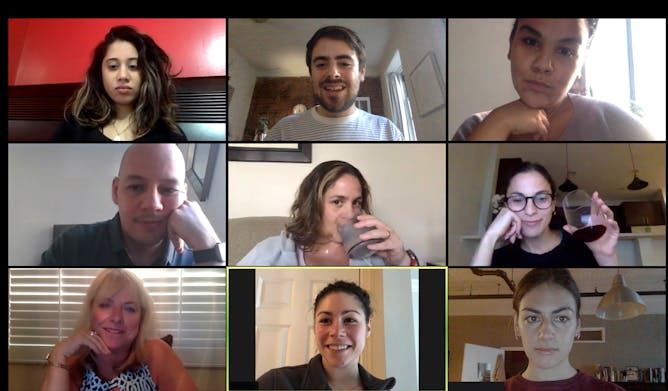|
|
|
|
Douglas Hartley was dismayed when the coronavirus pandemic hit the UK and he was forced to stop providing cochlear implant surgery – a procedure performed on deaf children to allow them to hear. While Hartley knew the risks he and his colleagues faced in performing this aerosol-generating operation during the outbreak of a deadly airborne virus, he also knew that if he didn’t provide implants at a specific time in a child’s development, they may lose the opportunity to hear and develop language skills entirely.
So he and his colleagues decided to find a way to protect themselves from harm and get back into the operating theatre. In a longread for The Conversation, Hartley explains how his team went from being banned from performing surgery at all to creating a brand new form of PPE using safety goggles, a respirator and a surgical tent, resuming vital procedures within a matter of weeks.
How worried should we be about recent reports of people getting coronavirus twice? Sheena Cruikshank breaks down how reinfection can happen, and why it might sometimes be worse the second time around.
And while many of us are still working from home and taking meetings via Zoom, new research has shown women still faced sexist demands at work related to their appearance during lockdown. Oddly enough, author David Foster Wallace saw our disenchantment with video meetings coming in his totemic novel, Infinite Jest.
|
Megan Clement
Commissioning Editor, COVID-19
|

|
|

Roman Pilipey/EPA
Sheena Cruickshank, University of Manchester
Reports of reinfection shouldn't be cause for alarm. If we gather the right data, they can teach us a lot about the immune response.
|

Douglas Hartley
Douglas Hartley, University of Nottingham
Before COVID-19, if you told me that I’d need to construct a tent in which to operate this year, whilst wearing spoggles and a respirator mask, I would not have believed you.
|

How to get ahead.
Ines Bazdar
Christopher Warhurst, University of Warwick; Dennis Nickson, University of Strathclyde
It's not just employers, it's society in general.
|

It was fun for a while, but people quickly got sick of video calls during lockdown.
Cabeca de Marmore via Shutterstock
Michael Hedges, University of Leeds
The 1996 novel foresaw people's obsession with video calls – and their eventual disenchantment.
|
Politics + Society
|
-
Carina Fearnley, UCL
Other countries have developed and used alert level systems effectively in the management of COVID-19. So why is the UK struggling?
-
Georgina Blakeley, University of Huddersfield
Tensions between regional leaders and central government have reenergised a devolution debate.
-
Richard Shaw, Massey University; Bronwyn Hayward, University of Canterbury; Jack Vowles, Te Herenga Waka — Victoria University of Wellington; Jennifer Curtin; Lindsey Te Ata o Tu MacDonald, University of Canterbury
Jacinda Ardern and Labour are returned to power in a landslide, making New Zealand political history in the process.
-
Karin Narita, Queen Mary University of London
The new Japanese prime minister, Yoshihide Suga's rejection of six scientists nominated for an advisory panel has raised concerns over academic freedom.
|
|
Health + Medicine
|
-
Lynn Williams, University of Strathclyde
Vaccines only work if enough people take them.
-
Grace C Roberts, Queen's University Belfast
Northern Ireland is the first UK country to impose a time-limited set of restrictions to try and get on top of the coronavirus.
|
|
Environment + Energy
|
-
Anitha Chinnaswamy, Coventry University
Staff and customers with underlying health conditions are likely to be most at risk at drive-through windows.
|
|
Arts + Culture
|
-
Alex Oliver, Glasgow Caledonian University
For optimal concentration, players need to cultivate 'meta-attention', the mechanism that enables us to refocus our attention when the mind has wandered.
|
|
| |
Featured events
|

|
Online, Leeds, Leeds, LS2 9HD, United Kingdom of Great Britain and Northern Ireland — University of Leeds
|

|
Swansea University , Singleton Park, Swansea, Swansea [Abertawe GB-ATA], SA3 3DX, United Kingdom of Great Britain and Northern Ireland — Swansea University
|

|
Sustainable Places Research Institute, Cardiff University, Cardiff, Cardiff [Caerdydd GB-CRD], CF10 3BA, United Kingdom of Great Britain and Northern Ireland — Cardiff University
|

|
Aston University, Aston Triangle, Birmingham, Birmingham, B4 7ET, United Kingdom of Great Britain and Northern Ireland — Aston University
|
|
|
|
| |
| |
| |
| |
| |
|
|
|
|
|
|
|